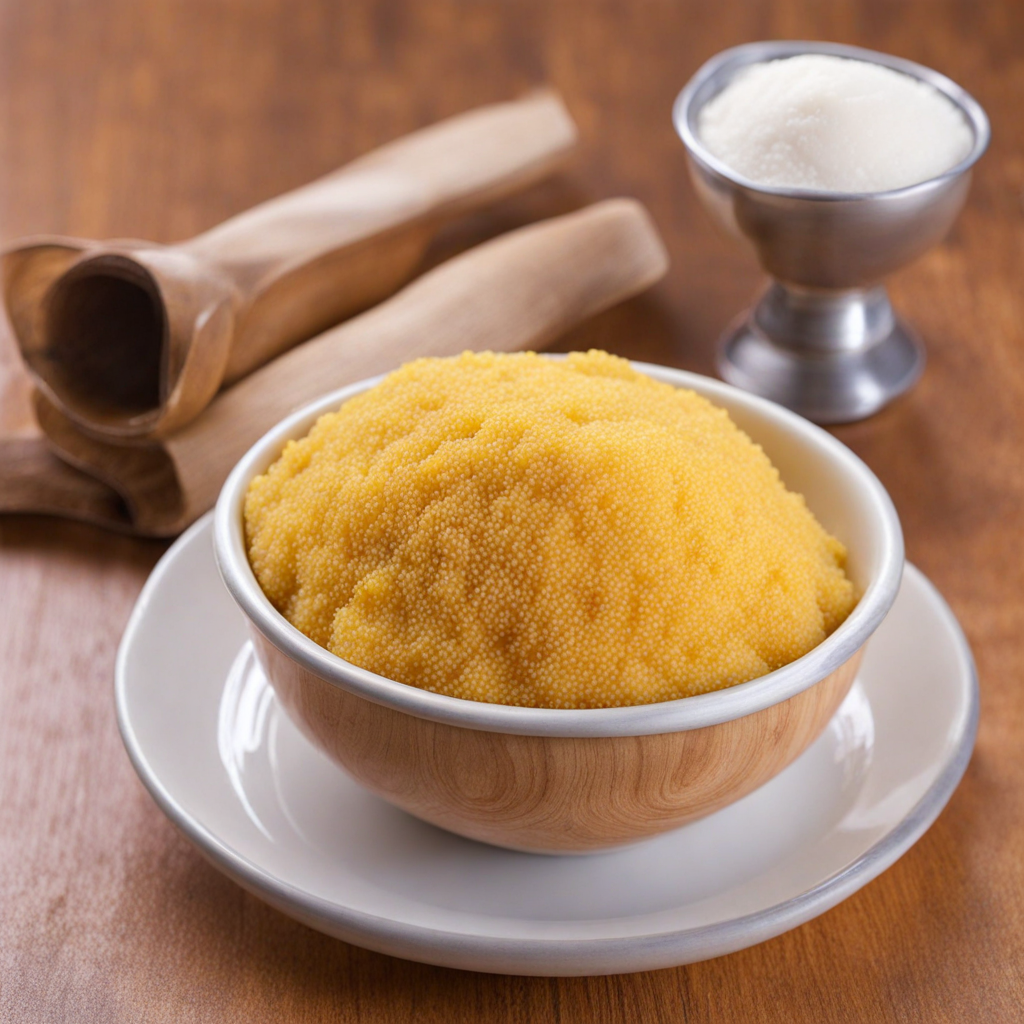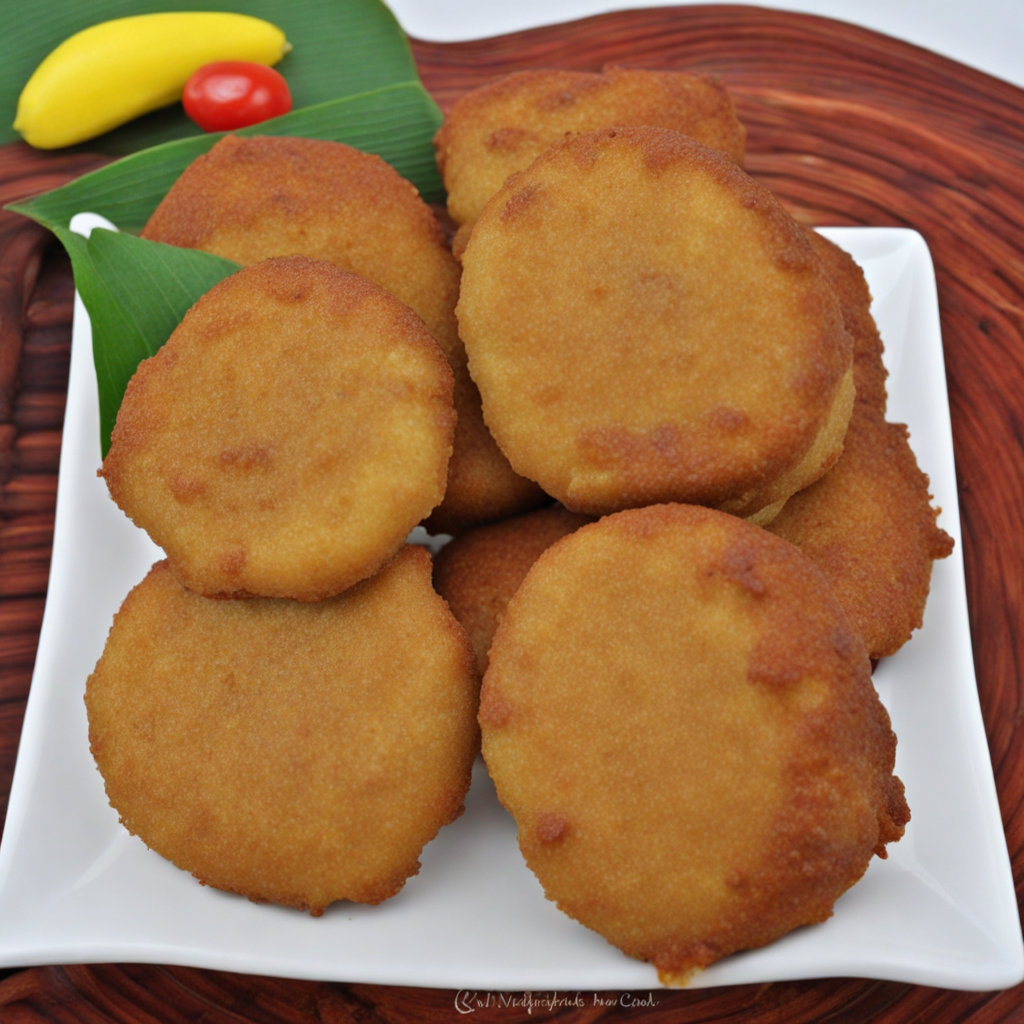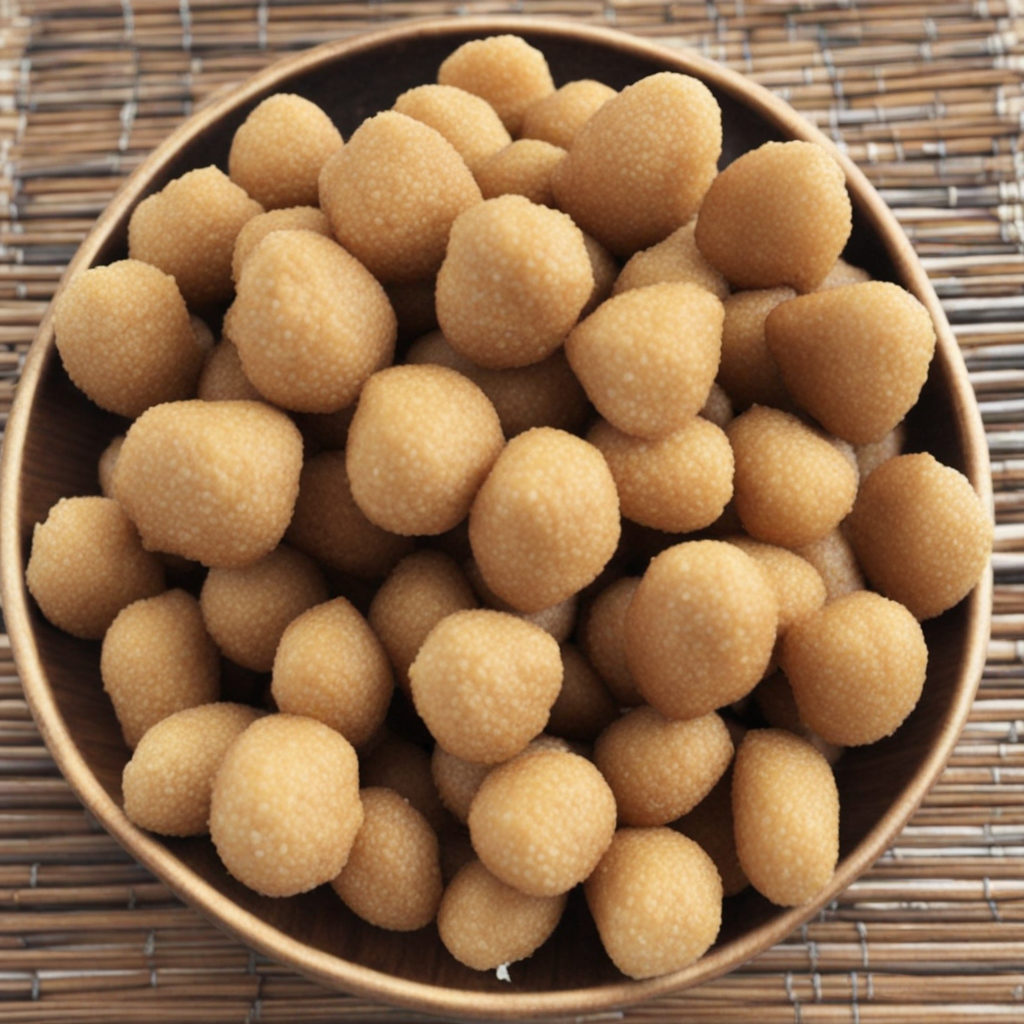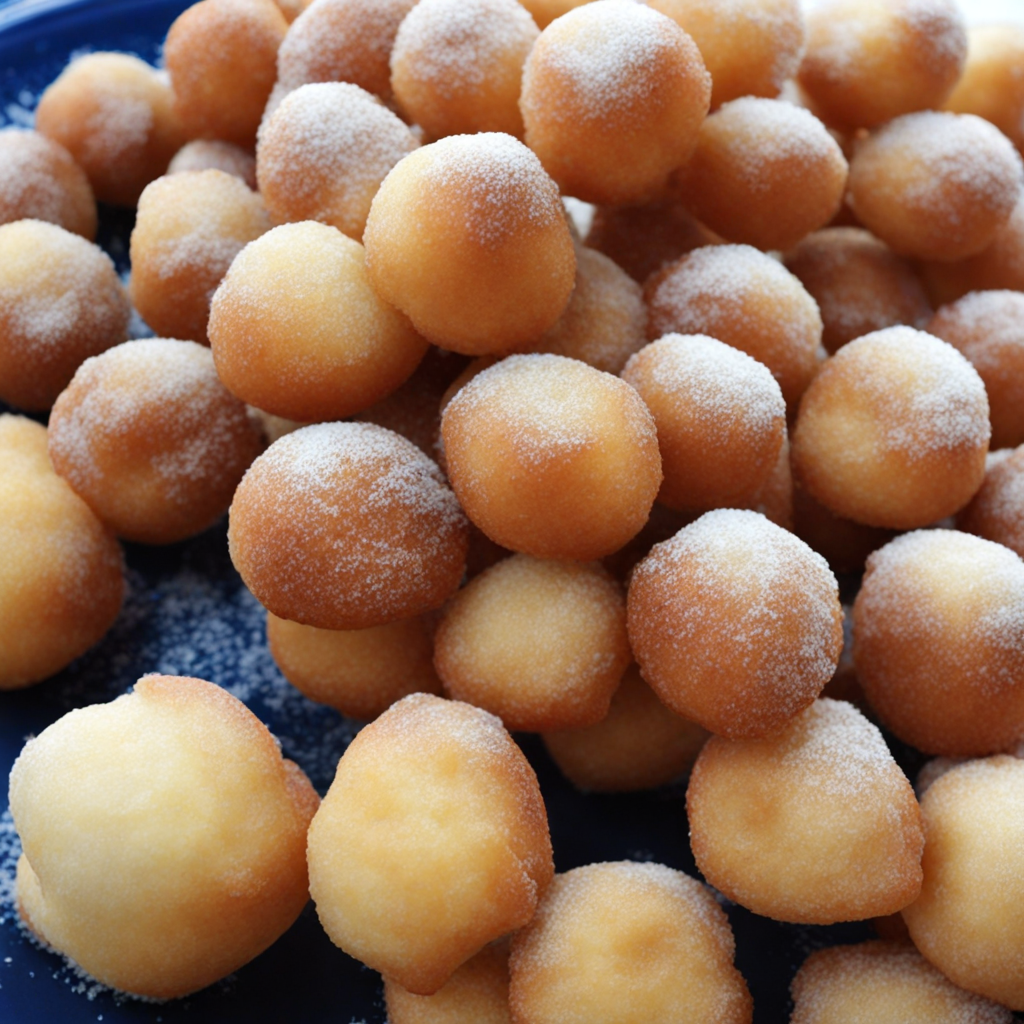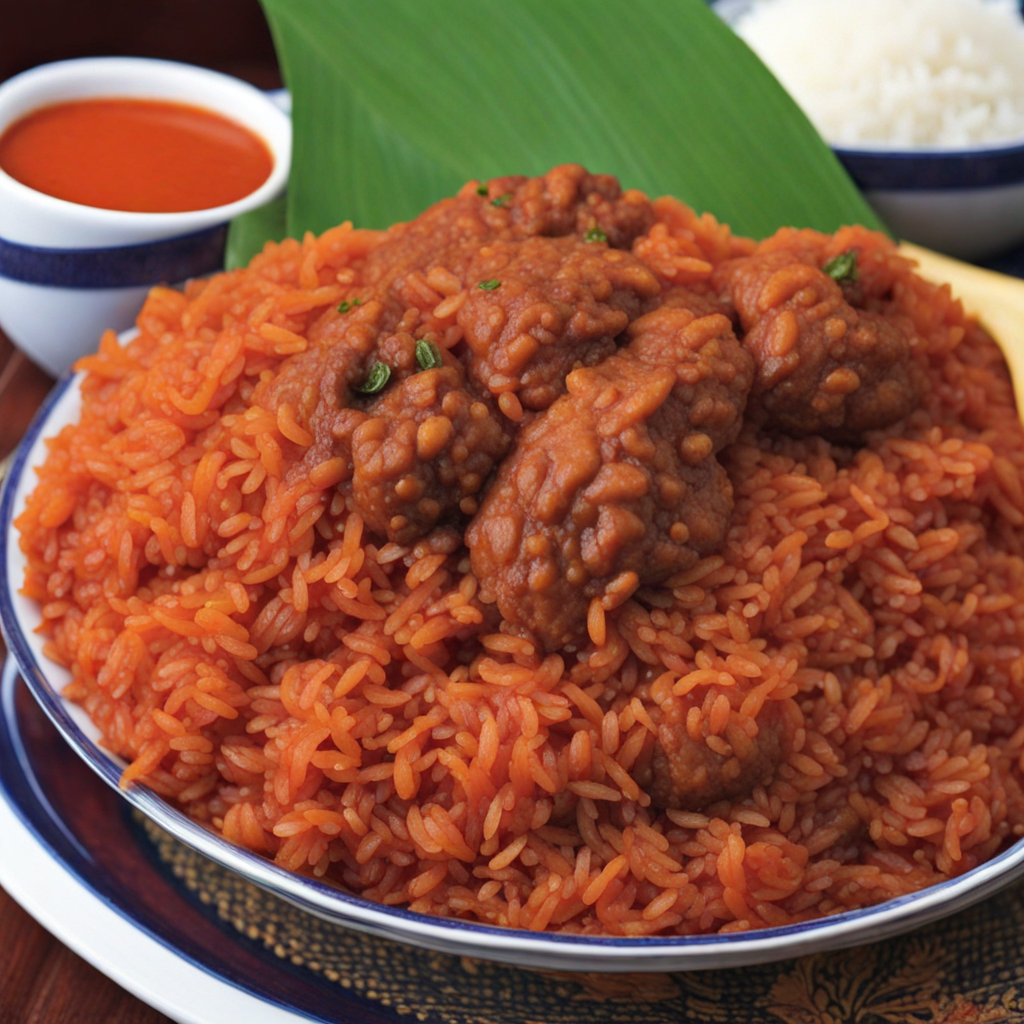Kokoro
Kokoro is a delightful Nigerian snack that encapsulates the vibrant flavors and culinary traditions of the region. Made primarily from cornmeal, Kokoro is a crispy, deep-fried treat that is often enjoyed as a street food delicacy. Its preparation involves mixing cornmeal with spices, seasoning, and sometimes a hint of sugar, resulting in a savory yet subtly sweet flavor profile. The texture is crunchy on the outside, while the inside remains slightly chewy, creating a satisfying contrast that keeps food lovers coming back for more. One of the standout aspects of Kokoro is its versatility. While the base recipe remains consistent, variations abound, with some vendors incorporating local ingredients such as groundnut (peanut) or coconut to enhance the flavor and nutritional value. The use of spices like chili pepper adds a gentle kick, elevating the taste experience and making it an ideal snack for those who enjoy a bit of heat. Served in a paper cone or a small bag, Kokoro is often enjoyed on the go, making it a popular choice among busy locals and tourists alike. Kokoro is more than just a snack; it embodies the spirit of Nigerian street food culture. It is often enjoyed during social gatherings, festivals, or simply as a midday pick-me-up. The communal aspect of sharing Kokoro with friends or family adds to its appeal, as it sparks conversations and creates lasting memories. For those looking to explore new flavors, Kokoro offers a unique taste of Nigeria that combines tradition, creativity, and a rich culinary heritage in every crunchy bite.
How It Became This Dish
The History of Kokoro: A Delicious Nigerian Delight Kokoro is a traditional Nigerian snack that embodies the rich cultural tapestry and culinary heritage of the country. This snack, which consists of crunchy, fried cornmeal or maize flour dough, has deep roots in Nigeria’s history and has evolved into a staple treat enjoyed by many. To fully appreciate Kokoro, we must explore its origins, cultural significance, and its development over time. #### Origins of Kokoro Kokoro is believed to have originated from the Yoruba people of southwestern Nigeria, where maize is a staple crop. Maize, or corn, was introduced to West Africa in the 16th century, likely via European traders who brought it from the Americas. This new crop quickly adapted to the local climate and agricultural practices, becoming integral to the diets of many Nigerian ethnic groups. The word "Kokoro" itself means "corn" in Yoruba, reflecting its main ingredient. Traditionally, Kokoro was made from a simple mixture of maize flour, sugar, and salt, which was shaped into sticks or small discs and then deep-fried until golden brown. The process was often a communal activity, with families gathering to prepare the mixture and fry it in large quantities. This shared labor not only helped in the preparation of this beloved snack but also reinforced social bonds within communities. #### Cultural Significance Kokoro holds a special place in Nigerian culture, serving as a symbol of hospitality and generosity. In many Nigerian households, offering Kokoro to guests is a sign of welcome and warmth. It is often served during celebrations, gatherings, and festivities, embodying the spirit of sharing and community. The crunchy texture and slightly sweet flavor make it an appealing snack for people of all ages, and it is often enjoyed alongside beverages, such as palm wine or local beers. In addition to its role as a snack, Kokoro also has a place in the culinary rituals of various Nigerian ethnic groups. For the Yoruba, it is often paired with traditional dishes, adding a delightful contrast in texture and flavor. Its versatility allows it to be enjoyed as a snack on its own or as part of a larger meal. Moreover, Kokoro is not merely a treat for special occasions; it is also a popular street food found in bustling markets and roadside stalls across Nigeria. Vendors frequently sell fresh Kokoro, enticing passersby with its savory aroma. This accessibility has contributed to its widespread popularity, making it an integral part of Nigeria's street food culture. #### Development Over Time While Kokoro has remained true to its roots, it has also undergone various adaptations and innovations over time. The traditional recipe has expanded, with different regions and communities putting their unique spin on the snack. Some variations incorporate ingredients such as spices, nuts, or even vegetables, reflecting the regional diversity of Nigeria’s culinary landscape. For instance, in some areas, Kokoro may be seasoned with pepper or flavored with local spices, giving it a distinctive taste that caters to local palates. The method of preparation has also evolved. While the traditional frying method remains prevalent, modern adaptations may include baking or air-frying, appealing to health-conscious consumers. This shift reflects a broader trend in the food industry, where traditional recipes are being reimagined to meet contemporary dietary preferences. In recent years, the globalization of food culture has further influenced the evolution of Kokoro. With the rise of social media and food blogging, traditional Nigerian snacks like Kokoro are gaining international attention. This exposure has led to a renewed interest in Nigerian cuisine, encouraging chefs and home cooks alike to experiment with traditional recipes. As a result, Kokoro is slowly making its way onto international menus, introduced to new audiences who are eager to explore the flavors of Nigeria. Furthermore, the rise of the Nigerian diaspora has played a crucial role in the promotion and preservation of Kokoro. Nigerian immigrants have brought their culinary traditions with them, introducing Kokoro to new locales around the world. It has become a nostalgic treat for many Nigerians living abroad, often evoking memories of home and family gatherings. This transnational exchange has not only helped to sustain the cultural significance of Kokoro but has also allowed it to evolve and adapt to new cultural contexts. #### Conclusion Kokoro is more than just a snack; it is a culinary emblem of Nigeria's rich history and cultural heritage. From its origins among the Yoruba people to its status as a beloved street food, Kokoro encapsulates the spirit of community, hospitality, and innovation that characterizes Nigerian cuisine. As it continues to evolve and adapt in response to changing tastes and global influences, Kokoro remains a delicious reminder of the enduring power of food to connect people and cultures. Whether enjoyed at a family gathering, a bustling market, or a trendy café, Kokoro serves as a tasty bridge between tradition and modernity, ensuring that its legacy will be cherished for generations to come.
You may like
Discover local flavors from Nigeria



